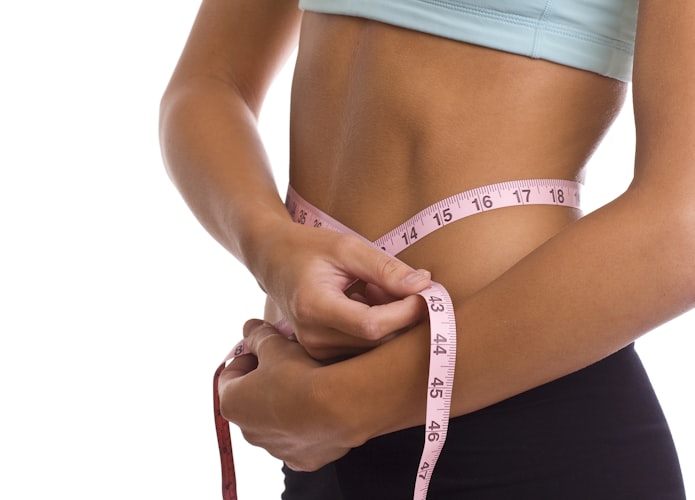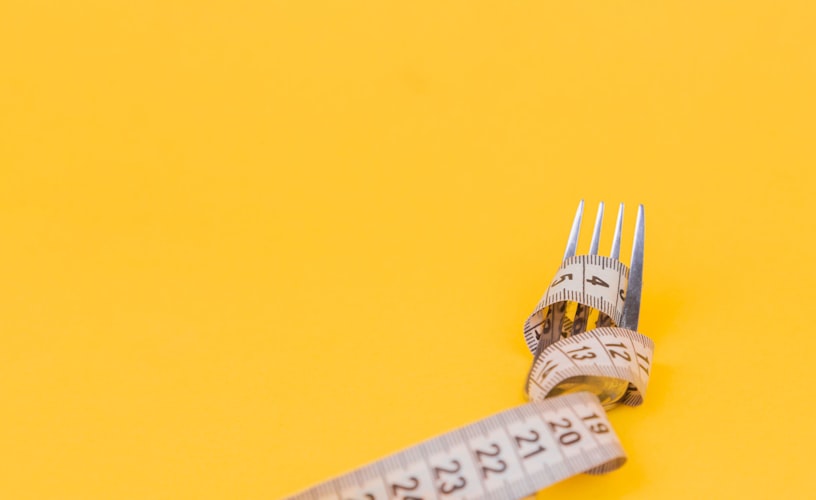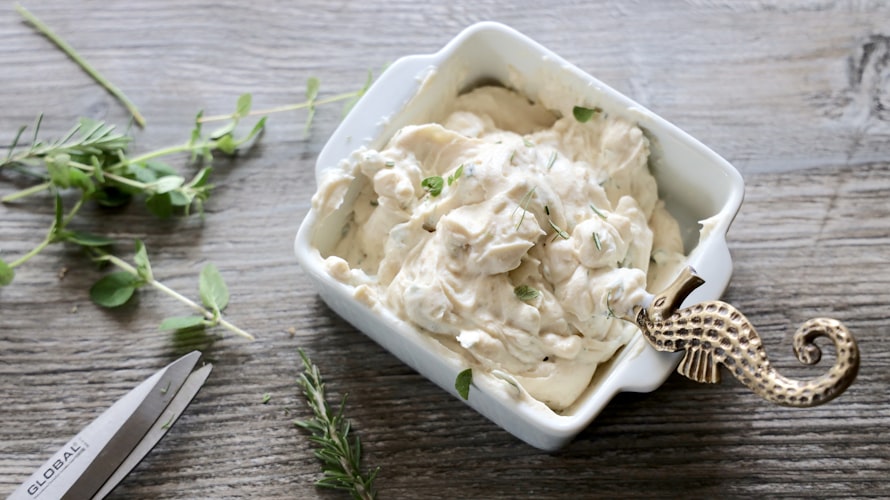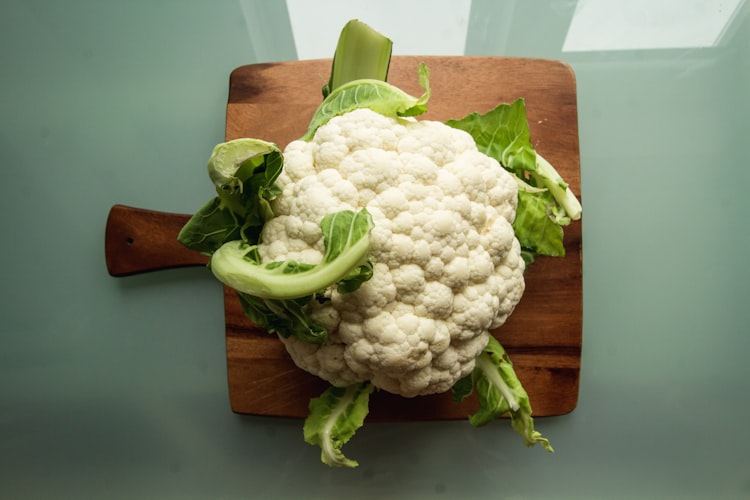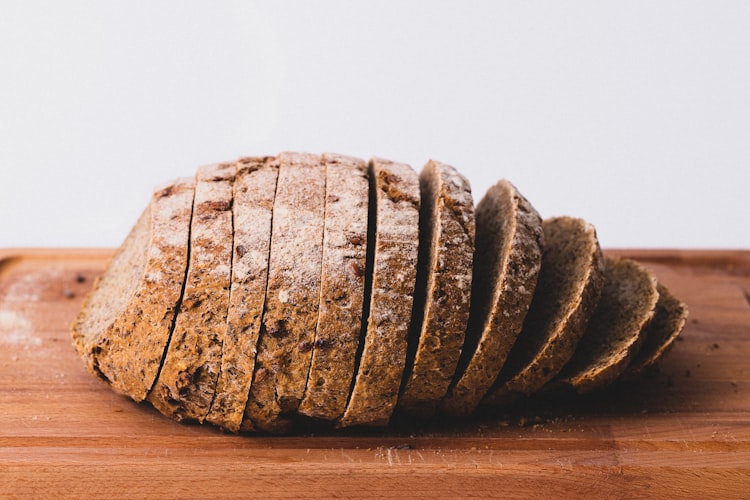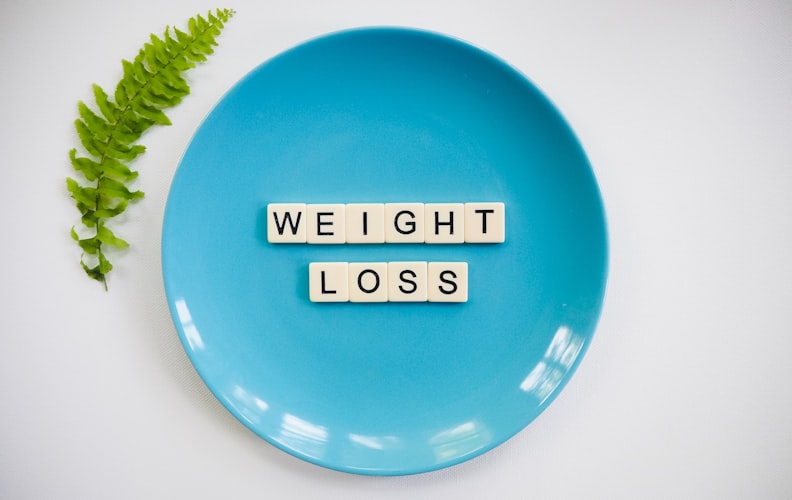
The ketogenic diet includes a whole lot of protein. So where does this leave vegans? Can vegans follow a ketogenic diet? Are there sufficient keto sources for vegans?
If you are looking to lose weight, a keto diet could be a great way to do this. It is a very low carbohydrate diet where the energy is sourced from fats and protein instead of carbohydrates. Since the vegan lifestyle is free from animal products, it is usually high in carbohydrates. Hence, when it comes to following a ketogenic diet, vegans face a harder time. However, if you are able to carefully plan out your meals and watch what you eat, you can achieve ketosis and maintain ketosis to reap its benefits.
How to Attain Ketosis
Ketosis is attained by ensuring that you get a greater portion of your macronutrients and calories from fats and proteins as opposed to carbohydrates.
In order to achieve ketosis, you should look to maintain macronutrient ratios of,
- Fat: 55-60%
- Protein: 30-35%
- Carbohydrates: 5-10%
We will be looking at the best keto sources for vegans and will highlight the various benefits and risks of following a vegan keto diet.
Hence, for those who consume a 2,000 calorie diet a day, in order to maintain ketosis, you should restrict your carbohydrate intake to between 25 to 50 grams. You can attain the remaining nutrients from fats and proteins. When your body doesn’t have sufficient carbohydrates to use for energy, it enters ketosis, which is a state of fat burning.
People normally on a ketogenic diet include animal products for they are high in protein and fat and low in carbohydrates. However, as a vegan, you have your work cut out for you. Almost all protein and fat sources which are plant-based come with a portion of carbohydrates. Hence, it is much more difficult for vegans to attain and maintain ketosis.
In order to maintain ketosis, you have to constantly be starving your body for carbohydrates. You don’t want to eat more than the prescribed 25 to 50 grams per day, for this could break ketosis (fat burning). It is a great way to lose weight and decrease the total body fat content.
What is important is that you have sufficient information about vegan protein and fat sources and include as many of these sources in your diet.
Hence, without further adieu, let’s dive into our list of the 10 best keto sources for vegans.
10 Best Keto Sources for Vegans
When you are trying to attain ketosis on a vegan diet, you need to ensure that you are controlling the amount of carbohydrates that you are eating. Coupled with this, you have to ensure that you are replacing your energy requirements by sourcing plenty of healthy foods that are high in fat and protein. Try to include as many of these protein sources in your diet to maintain both good nourishment and ketosis.
1. Coconut Products
Coconut is loaded with fat. A 100 gram serving of coconut has about 33 grams of fat. Coconut products come in various forms that you can enjoy. You can use the milk in your smoothies, or coconut cream in cooking. There is also unsweetened coconut, which is a healthier option.
When on a keto diet, you should be on the lookout for high fat and high protein food sources, which simultaneous will deliver the lowest amount of carbohydrates. A 100 gram serving of coconut only provides the body with 15 grams of carbohydrates.
2. Berries
Berries though sweet can be enjoyed in moderation. Blueberries, blackberries, raspberries and strawberries are all good to include on a keto diet. A 100 gram serving of berries usually has about 14 grams of carbohydrates.
Though the carbohydrate content is low, the protein and fat content in berries are lower. Hence you shouldn’t overeat berries if you want to maintain ketosis. Remember, a normal diet will allow for about 25 to 50 grams of carbohydrates. With that in mind, do the math. You could easily enjoy about 20 grams of berries and stay within ketosis, based on other carbohydrate sources that you might eat during the day.
Always check the carbohydrate content of what you eat. This will give you a rough parameter of how much of something you should eat to ensure that you stay in ketosis.
3. Avocados
You can make some amazing guacamole with avocado. They also work really well in a smoothie. Avocados are loaded with nutrients and have an amazing macronutrient profile. They are loaded with healthy plant-based fats and can be a reliable source of fat on a ketogenic diet.
A 100 gram serving of avocado only has about 2 grams of protein. However, the same serving of avocado would contain up to 15 grams of fats.
Avocados only contain about 9 grams of carbohydrates in a 100 gram serving. This makes avocado a reliable fruit to ensure that you stay within ketosis.
4. Vegan Dairy
Vegan dairy includes coconut yoghurt, vegan butter, cashew cheese, vegan cream cheese, any plant-based cheese, milk, butter or yoghurt. Diary is known for the fact that it is loaded with fats and protein. This is true for plant-based alternatives too.
However, with every plant-based dairy source, there will be a portion of carbohydrates. Hence, be sure to check exactly the amount of carbohydrates in what it is that you are consuming. This way, you would have a better idea of how much you can consume to ensure that you maintain ketosis.
While rice milk has about 22 grams of carbohydrates in an 8 oz serving, which is difficult to consume when on a ketogenic diet, alternatives to rice milk such as almond milk only contain 1 gram of carbohydrates for the same serving. When you make the comparison, you automatically see that almond milk is considered the more keto-friendly diary source, that is sure to deliver your body with fats and proteins with the lowest amount of carbohydrates.
Hence, if you are making a smoothie, make sure to use the right type of milk to maintain ketosis.
Vegan dairy sources can be a reliable and versatile ingredient to include in your meals. Vegan cheese can make your salad’s tastier, while vegan yoghurt is great with a serving of berries. They are all worthy sources of fat and protein. However, some plant-based dairy products are simply too high in the amount of carbohydrates they deliver to maintain ketosis. Hence, ensure that you check the nutrient profile of the vegan diary prior to including it in your diet.
5. Tofu
Tofu is made from soybeans and is an excellent source of protein on a vegan diet. It is made from pressing soymilk curd into solid slabs.
Protein sources are important when on a ketogenic diet. You want to find foods that are high in protein and low in carbohydrates. Tofu is such a great option when it comes to a vegan ketogenic diet, that you should consider making it a staple.
A 100 gram serving of tofu contains only about 1.9 grams of carbohydrates. It also contains about 8 grams of protein and 4.8 grams of fat. Hence, you can see why tofu is recommended as a staple when on a vegan ketogenic diet.
There are many ways you can prepare tofu. With a handful of recipes to help you prepare tofu, you should be well equipped to maintain ketosis and lose weight.
6. Tempeh
Tempeh is another product of soybean and is an excellent protein source for vegans. It is also a brilliant source of plant-based probiotics. Made with a mixture of grains and flavouring agents, tempeh is nutritionally well defined for the ketogenic diet.
Though not as great as tofu, tempeh contains about 9 grams of carbohydrates in a 100 gram serving. It also contains about 19 grams of protein and 11 grams of fat.
All in all, it is a reliable source of protein and fat, and only deliver a low amount of carbohydrates in comparison to grains. It is a versatile ingredient and can be prepared and served in many ways.
7. Non-starchy Vegetables
Starch contains carbohydrates. Hence, when you are picking vegetables, you have to ensure that you are choosing vegetables that are not starch-based. This means, no potatoes.
No starch-based vegetables doesn’t mean that you can’t enjoy a salad. You just have to ensure that you are choosing vegetables that are loaded with nutrients, however, don’t contain a high amount of carbohydrates.
Leafy greens, Brussel sprouts, broccoli, cauliflower, peppers and mushrooms are all great vegetables that you can enjoy while ensuring that you are maintaining ketosis. Though you may be limited in one sense, it will go a long way in achieving those weight loss ambitions. Hence, be on the look for starch when you are choosing vegetables.
8. Nut and Seed Butter
Butter is loaded with fat and protein and plant-based butter is no different. A serving of peanut butter in your smoothie will go a long way in providing excellent taste, with a wholesome amount of healthy fats.
Nut and seed butter, like peanut butter, almond butter, sunflower butter and cashew butter, all contain the right ratio of carbohydrates to fat to ensure that you stay within ketosis.
A 100 gram serving, which is a rather large portion of peanut butter, contains about 20 grams of carbohydrates. However, the amount of fat in peanut butter is greater, with a 100 gram serving holding about 50 grams of fat. It also contains a healthy amount of proteins at about 25 grams in the 100 gram serving.
All in all, nut and seed butter can be a great ingredient in preparing your meals and can provide some excellent value in terms of ketosis and nutrition. Include them in your diet to reap the benefits of both taste and weight loss.
9. Nuts and Seeds
Nuts should not be underestimated and neither should seeds. Nuts and seeds are some of the most nutritionally packed foods that contain a good amount of healthy fats.
A 30 gram serving of hemp seeds for instance contains about 9.47 grams of protein and 14.6 grams of fat. Carbohydrates only amount to about 2.6 grams, which is great when you are trying to maintain ketosis. They also provide a good amount of fibre to ensure proper gut health. Chia seeds and pumpkin seeds are two more great options when it comes to seeds and provides the body with a wholesome amount of nutrients while ensuring that you stay in ketosis.
Nuts including almonds, Brazil nuts, walnuts and macadamia nuts, all contain a good ratio of fats and proteins to carbohydrates. This is why they are so beneficial when it comes to the ketogenic diet. Cashew nuts do have a greater amount of carbohydrates in comparison to other nuts. Hence, to be sure, make sure to check the carbohydrate content of everything you eat.
10. Oils
When you are preparing dishes, you need oils to make them work. Oils are great for when you are trying to maintain ketosis. Simply adding some olive oil to your salad adds a bit of flavour and makes the salad so much tastier.
Oils are not going to break ketosis. In fact, olive oil contains zero carbohydrates and protein and is almost completely fat. This is healthy fat which is considered good for you.
You shouldn’t be afraid of oil when you are on a ketogenic diet. Oil as mentioned is almost completely fat, which means you are in the safe zone.
Protein vs Carbohydrates
When you are looking to maintain ketosis, you want to ensure that you are eating a substantially greater portion of protein in comparison to carbohydrates.
We have a list of 30 vegan protein sources, that you should look at. That being the case, some of these protein sources contain a high amount of carbohydrates, which means it doesn’t work to help you maintain ketosis. You want to find the protein sources that are high in protein, at the same time, low in carbohydrates.
A 100 gram serving of lentil for instance contains 20 grams of carbohydrates while providing the body with 9 grams of protein and only about 0.4 grams of fat. Though you can see that is a reliable protein source when on a vegan diet, it isn’t the best source of protein when on a ketogenic diet and is easily trumped by the nutrient profile of tofu which we saw earlier.
Though on this list, lentils do not provide us with the best protein source for vegans on a ketogenic diet. Either way, we will leave you a link to our 30 sources of protein on a vegan diet for you to have a look at. Click here.
What You Shouldn’t Eat to Maintain Ketosis
When on a ketogenic diet, there are a host of foods that you would have to eliminate from your diet. These include grains and starches such as cereal, bread, baked goods, rice, pasta and grains. These foods simply contain too many carbohydrates in them to enable you to maintain ketosis. Remember, you have to consume between 25-50 grams of carbohydrates a day.
With the obvious exclusions of sugary drinks and sweeteners, sweet tea, soda, sugary juice, sugary smoothies, maple syrup, brown sugar, they all have to be cut out from your diet. You also want to be on the lookout for starchy vegetables such as peas, potatoes, beets and winter squash. They contain too many carbohydrates to help you maintain ketosis.
Beans and legumes contain mostly carbohydrates and should also be eliminated from the diet when trying to maintain ketosis. Remember, you want to identify the high carbohydrate sources and eliminate them from your diet. This also includes alcoholic beverages such as wine and beer.
Though difficult, fruits will have to be limited too. Asking a vegan to limit fruits isn’t easy, however, if you are looking to maintain ketosis, you want to ensure that you enjoy fruits like berries and avocados in small portions. This is because fruits contain sugars that prevent your body from going into ketosis. You are more likely to use sugar as a form of energy and not burn fat.
Lastly, you want to steer clear of processed food for they tend to contain more carbohydrates. Try to stick to unprocessed whole foods. You also want to ensure that you don’t use high-carbohydrate sauces and condiments while preparing your meals such as sweetened salad dressing and barbecue sauce.
Benefits of the Vegan Ketogenic Diet
The vegan diet is known for the various health benefits it brings to the table. It has been long praised for its ability to better regulate the health of individuals and is considered better for various systems in the body including the cardiovascular system and digestive system. However, there hasn’t been a lot of studies conducted on the benefits of the vegan keto diet.
The benefits of the vegan diet lead us to believe that those who undertake a vegan keto diet have a reduced risk of major factors that lead to heart disease, including hypertension, LDL cholesterol and triglyceride levels.
Coupled with the fact that the ketogenic diet can help you lose weight, the vegan ketogenic diet is linked to better health in general. The fat that you consume on a vegan ketogenic diet is considered healthier than consuming animal fat, which means, you have less chance of developing conditions such as high cholesterol and high blood pressure.
All in all, though the studies are not conclusive, the vegan ketogenic diet has a promising future with some real benefits to health while simultaneously working to help lose weight.
Risks of the Vegan Ketogenic Diet
The trouble with a vegan ketogenic diet is, it is more restrictive than a regular ketogenic diet or even a regular vegan diet. There are so many foods that you would have to stop from eating. Hence, you would need to take extra care when planning and preparing your meals.
One of the major drawbacks of a vegan ketogenic diet is that people find it difficult to maintain a low carbohydrate diet for a long period of time. They simply are unable to sustain the ketosis necessary to see weight loss.
Though constipation is one of the primary risks of the ketogenic diet when on a vegan ketogenic diet, it is more likely that you would be consuming more fibre, which will work to prevent constipation. However, there is a risk of developing constipation, unless you include a whole lot of non-starchy vegetables into your diet.
The amount of saturated fat in a normal ketogenic diet is also greater, which means you are more likely to experience risk factors of conditions such as heart disease. The vegan diet tends to be lower in saturated fat which means the risk of heart disease is significantly lower.
Low blood pressure and nutritional deficiencies are real worries which come with the vegan ketogenic diet. There is a real risk of developing low blood pressure or various conditions due to nutritional deficiencies.
The ketogenic diet is not for everyone. It is most certainly not for those who are pregnant or breastfeeding. You would also have to refrain from following the ketogenic diet if you have any of the following.
- Thyroid disorders
- Pancrease problems
- Liver Issues
- Gallbladder conditions
- Diabetes
- Eating disorders
To Conclude
The vegan ketogenic diet can be a great way to lose weight. However, it is for certain more difficult to ensure that you are getting all the nutrients that your body needs. Hence, when on a vegan ketogenic diet, you have to be extra careful to ensure that you are not losing out on nutrients though you are controlling the amount of carbohydrates you intake.
The key to success with the ketogenic diet rests on the measure of carbohydrates. As recommended, you should look to eat no more than 25 to 50 grams of carbohydrates a day. This means, checking the carbohydrate content of everything you eat on Google before you include it in your diet.
Remember, though it is a good source of protein, it may not be a good source of protein for a vegan ketogenic diet. Just make sure that the carbohydrate content is low.
We aimed to provide you with a good starting point to your weight loss journey with ketosis and have provided you with 10 reliable sources for a vegan ketogenic diet. You should look to include as many of these sources to reap the benefits of the various nutrients in all of them, and work out the types of meals that you can prepare with the elements on this list.
The number of foods that you can consume on a vegan ketogenic diet can be limited. This is why it is considered difficult to sustain and maintain ketosis. However, if you find the discipline and the information that you require, you should be well prepared to take on the task.
We hope reading this word to word has helped you understand a little better about how to go about sourcing food for a vegan ketogenic diet. We aimed to provide you with an insightful article containing much of the information you would need to get started!
Happy Ketosis!



